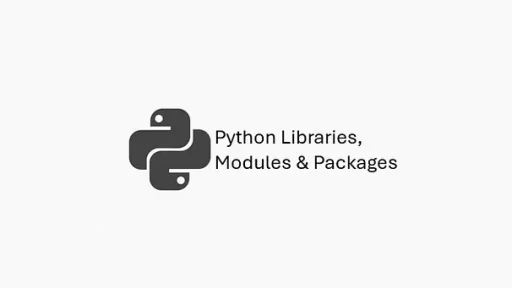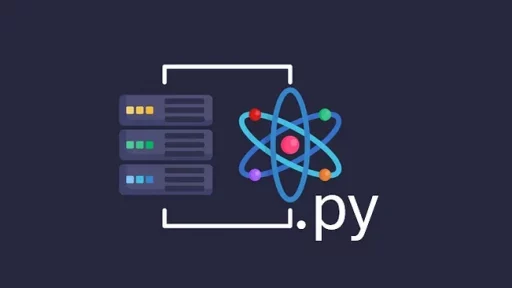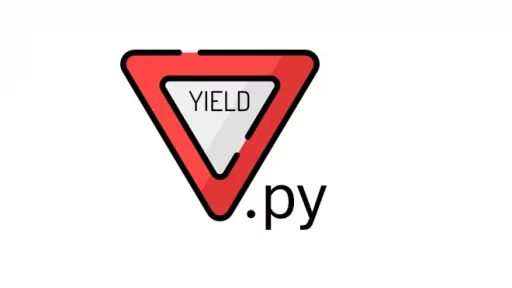Whether you’re a complete beginner or an experienced coder looking to sharpen your skills, there’s always something new to learn in Python. With so many resources available, it can be hard to decide where to start. So, to make your journey easier, I’ve compiled a list of some fantastic Python books. These cover a wide range of topics, from basic syntax to advanced programming techniques.
In no particular order:
1. Python Crash Course by Eric Matthes
If you’re just starting out, Python Crash Course is a perfect choice. This book offers a fast-paced introduction to Python programming for beginners who want to get hands-on experience quickly. It focuses on practical application rather than theory, which is great for learners who want to see real-world results fast.
The book is split into two sections. The first half introduces fundamental programming concepts such as variables, lists, loops, and functions. The second half walks you through three hands-on projects: a Space Invaders-style game, a simple data visualization project, and a web application using Django. It’s packed with exercises that encourage learning by doing, making it ideal for people who learn best through active practice.
2. Automate the Boring Stuff with Python by Al Sweigart
Ever wanted to automate repetitive tasks in your life? Automate the Boring Stuff with Python is a practical guide to using Python for day-to-day tasks like renaming files, filling out online forms, and scraping websites. Al Sweigart, the author, has a knack for breaking down complex topics into easily digestible chunks.
The book is aimed at beginners and intermediates who want to focus on practical applications. You’ll learn how to write programs that handle spreadsheets, manipulate PDFs, and control your mouse and keyboard automatically. If you’re looking for a book that will teach you practical skills you can apply right away, this is a fantastic option.
Plus, the entire book is free to read (cc license) on its website, making it accessible to everyone.
3. Fluent Python by Luciano Ramalho
For experienced Python developers looking to take their skills to the next level, Fluent Python is a must-read. This book dives deep into the internals of Python, helping you write more efficient and idiomatic code. It covers advanced topics like data structures, metaprogramming, concurrency, and the use of Python’s built-in libraries.
Fluent Python focuses on teaching you how to write “Pythonic” code — code that leverages the full power of Python’s unique features. While this book isn’t for beginners, it’s perfect for someone who has been using Python for a while and wants to write cleaner, more elegant code.
4. Python for Data Analysis by Wes McKinney
If you’re interested in data analysis or working with large datasets, Python for Data Analysis by Wes McKinney is an essential read. McKinney is the creator of the Pandas library, which has become the cornerstone of data analysis in Python. The book offers a comprehensive guide to using Python for data science, focusing on tools like NumPy, Pandas, and IPython.
This book walks you through practical applications of data wrangling and analysis, with plenty of real-world examples to help you understand how these tools can be used effectively. Whether you’re just getting into data science or looking to improve your skills, this book is a fantastic resource.
5. Python Programming: An Introduction to Computer Science by John Zelle
If you’re interested in learning Python through the lens of computer science, Python Programming: An Introduction to Computer Science by John Zelle is an excellent choice. This book uses Python as a tool to teach foundational computer science concepts like algorithms, data structures, and object-oriented programming.
It is particularly popular in academic settings and is frequently used in introductory computer science courses. The book is easy to follow, making it ideal for beginners who want a gentle introduction to both Python and computer science theory.
6. Effective Python by Brett Slatkin
Effective Python is an exceptional book for intermediate Python developers who want to hone their skills and learn best practices. It offers 90 practical tips for writing better Python code, with each tip focusing on a specific aspect of the language. Brett Slatkin explains these concepts clearly, offering examples and explanations that make it easy to see why each tip is important.
This book is designed for programmers who already have a basic understanding of Python but want to become more proficient. The advice here will help you write code that is more efficient, readable, and maintainable. It’s a great resource for anyone who wants to refine their coding style and master the subtleties of Python.
Thank you for reading this article. We hope you found it helpful and informative. If you have any questions, or if you would like to suggest new Python code examples or topics for future tutorials/articles, please feel free to join and comment. Your feedback and suggestions are always welcome!
You can find the same tutorial on Medium.com.


